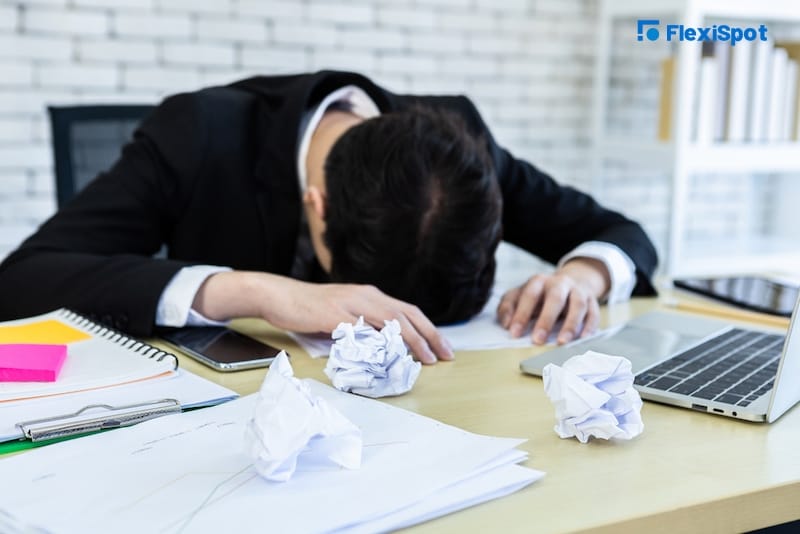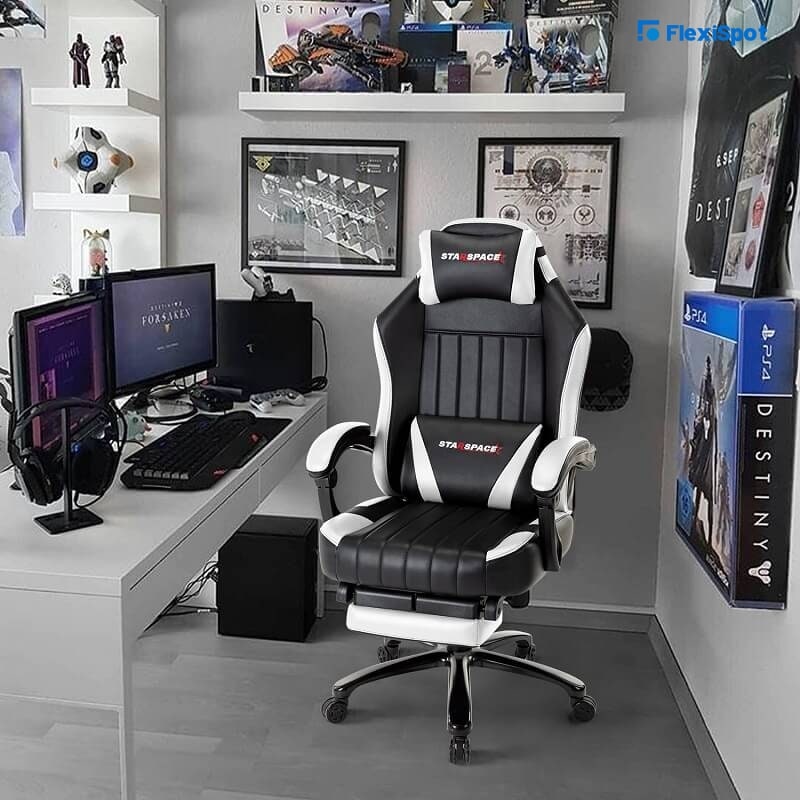Now that the pandemic successfully pushed the world to digital tech, the talk of the town is the never-ending demand for software developers. Generally, we can see it from the lens of positivity - reduction of skilled labor means a soaring supply of better job offers and higher wages for them.
There was even a report that indicated that although the pandemic wreaked excessive havoc and job losses in 2020, income for top software developers and engineers skyrocketed between 3% to 7% on average. And you can see for yourself in the top tech hubs in New York City, San Francisco, and London.
But that's the good side. What happens when this mountain of tasks that you enjoy doing become too much? How are you going to cope? Of course, you might start the race with the fullness of energy, zeal, and ambition where you embrace every new lucrative job that comes your way.
At times, you feel challenged and frustrated but you're advancing your personal goals and learning, so it's expected that the buzz helps you as you progress. Alas! The projects become too overwhelming to handle.
You notice that you're working late despite waking early, use your weekends to finish all those tasks that spilled over during the weekdays. That's fatigue.
So what do you do to gain your "life" back? Not to worry. This article will discuss some signs that are associated with developers' and gamers' fatigue.
We'll also cover some remedies to reduce and prevent it. Let's get to it.
What is Occupational Fatigue?
According to the World Health Organization, occupational fatigue is a recognized pattern that can be traced to your career life and operates in three ways:
Sensing exhaustion and energy dissipation.
Wider distance between your job and mental health, or feelings of hopelessness and bitterness towards your job.
Diminished professional efficiency.
You should know that no workplace is free from fatigue. But it only seems to be a big challenge for folks in the tech world, and the reason is obvious. Their work-life is completely demanding, sedentary, and isolating. So you can't expect them to be entirely immune.
Barely four months ago, the analytics company, Haystack, conducted a survey that shows that up to 83% of software developers and gamers in the UK suffer from workplace fatigue. Can you imagine how destructive it'll be if the trend continues without getting checked?
When these people were engaged, the most common reason given was the "excessive workload" they were allotted. Other reasons pointed out were the communication gap between the workers and hub managers, lack of motivation and encouragement, personal problems, unproductive working patterns, and shallow rapport with colleagues.
Again, many of these respondents said they feel more fatigued due to the COVID-19 pandemic and uncertainties about what their future holds. In other words, the tech industry is at the receiving end of the pangs because of the higher demands and the multiplicities of their tasks.
Meanwhile, we've got some preventive measures that'll keep you from getting fatigued. Before we do that, let's run through the initial developer and gamer fatigue symptoms.
Symptoms of Developer and Gamer's Fatigue
You should note that fatigue does not pop up overnight. Believe it, it has been lurking around your body system for a while, quietly building up in your mind until it senses pressure that'll trigger it to life.
You should also know that recovering from bad fatigue can also take some time - it can take some people months while some spend years to get fully recharged and get themselves back. So we can't trivialize the place of knowing how to identify the red flags before it develops into burnout or chronic fatigue.
Again, the thing with developer and gamer fatigue is that it can take different dimensions. So you should be very vigilant not to take the symptoms as normal bodily reactions.
Here are some of the most common symptoms:
Loss of Interest and Efficiency
If you suddenly realize that your usual enthusiasm or zeal for programming is probably diminishing, you should know that fatigue is about to attack. This is the first rule you should always pay attention to. After all, what makes a software developer when he doesn't enjoy programming?
So it'll be very easy for you to notice the sudden decline. It might come in form of getting cold feet just to log into your computer, or you might start feeling disinterested in the entire setup. You might even feel jittery and uncomfortable at the thought of opening your coding app. On the other hand, distrust and bitterness might start taking charge.
All these are signs that you're not deriving the usual satisfaction from any part of your work and that's like an intro to fatigue or burnout. So if you're interested in nipping the deficiency in the bud, you should get to work immediately.
Going further, you might even be able to pull through some of the projects. The major cogs in the wheel will be that you're working at an extremely slow pace. And when you're finally done? You don't have much to show for the time spent.
This means fatigue is eating deep into your work efficiency. Have you noticed that you easily get off the track anytime you're conversing with your colleagues? That's developers' fatigue.
It'll also make you feel lifeless and unenthusiastic when discussing your tech hub or job goals. If you're more likely to procrastinate tasks or come late to work without any tangible reason or deliver below standard, there might be a problem with the productivity level
Be on alert!
Mood Swings
Do you often experience bad moods anytime while working? Well, many people tend to normalize mood swings as a natural trait that occurs and that everybody experiences it at one point or the other.
Some even christened it "dark moments" but you should know that there's no medical proof that it's natural. Mood swings might come at you by bursting out at slight inconveniences or getting easily irritated. All these are the top signs that occupational fatigue is nearby.
Fine, it's obvious that programming is mentally demanding and it can drain your strength, but if the exhaustion becomes too intense. That's no longer the usual tiredness. If you're too worn out to engage in other activities after the day's work, think straight, or enjoy those hobbies you've always loved, you might be approaching fatigue.
You should be very observant here, so you should closely monitor your mood swings. Are they strange or unfamiliar in any way? Do they make you feel like your emotions are "dead"?
If your answers are in the affirmative, that's another symptom and you need to get seek immediate attention. How about your performance levels? Do mood swings seem to dominate your work pattern? If you observe that you're missing targets or deadlines that you used to hit, that's a signal that you're gravitating towards fatigue and burnout especially when nothing is bothering your mind.
Physical and Mental Discomfort
It's no longer news that sitting all day is not good for our health. How much more glued to your computer screen for hours? It can cause back problems, eye strains due to the lights emitting from the PC, headaches, and muscle pain, among others.
If you become increasingly indisposed with cases of flu and cold more than usual, it might be a warning signal that stress is about to or has deactivated your immune system. Also, if you find it difficult to do other things apart from coding and gaming, there might be a problem brewing. Hope you get that right?
Since software developers work solitarily, especially when your company operates WFH, this might make you lose your social contacts and it might make you feel lonely. So it's like you're robbed of both personal relationships and work colleagues. The feeling might start pushing you towards self-doubt and loss of self-esteem.
And in no time, you might be prompted to further isolate yourself from other people, finally crashing into a demoralized cycle of reclusion. Meanwhile, let's consider one of the biggest mistakes committed in the office space. People don't seem to understand that work overload can also lead to physical discomfort.
And the physical pain for a developer or gamer will be an unsatisfying programming setup, while that of a gamer could be a poor interface. So staying dedicated to your screen at all times might worsen your physical pains and inconveniences.
Unhealthy and Strange Habits
We all have different reactions to stress. Some believe the best antidote is when they spend more time in bed, while some eat more than usual. Either way, experiencing sleeping or eating deficiencies in a person underlines mental issues and you should seek medical help.
As an employer, if you notice that some of your employees are taking more breaks than expected with tiredness or sickness complaints, that is clear evidence of occupational fatigue. In other words, accumulated anxiety and stress can lead to brain weakening such that you'll have no strength to complete a project or you'll be tempted to reject it outrightly.
And if this is not addressed at the early stage, you might be forced to withdraw from the job. If you notice that you don't have quality sleep at night, or you wake up feeling rough, anxious or struggling to build a mental picture of how you plan the coding tasks for the new day, you need to treat it as an unhealthy trait.
How about the kind of diet you eat? If there's a sudden loss of appetite, an urge to change your diet plan, higher energy drinks and coffee consumption, or increased snacking, they are all red flags!
How to Avoid Gamer Fatigue
Knowing the symptoms and signs is important to understand when you or your friend stands at the verge of fatigue or burnout. But preventing it from taking place demands some action and the earlier you get to address it, the better.
Here are some guides that'll help you avoid fatigue:
Taking Intermittent Breaks From Work
As the popular saying goes: "healthy body births a healthy mind", you should always prioritize your physical and mental well-being. Ordinarily, you should spend the entire day glued to your system.
We understand that you've got work to do but don't you know that engaging in other activities will boost your health? Yes, creating time to move around your workstation will help you clear your mind and improve your blood circulation.
It doesn't have to be a long walk - you can take a couple of steps from the screen to chat with a friend or get something. All these activities will revive your strength and keep you fresh.
And it's not a bad idea if you could go on long vacations. You've worked and you earned it! Even if your daily schedule is working fine for you, going on breaks will calm your nerves, reduce stress, and give you a new environment to explore and enjoy. Yes, don't even consider taking your computer along. Enjoy the moment!
As you take these intermittent breaks from work, you can also top it with some mild exercise, and a balanced diet. If you could observe these ideas, you're almost assured to operate better than you would if you abandon these things.
Create Time to Appreciate Your Workers
One good turn, they say, deserves another. That's a very simple but commanding statement. As a business manager, you need to cultivate the habit of appreciating and commending your workers regularly. Naturally, we are all wired to perform more effectively when we know that some commending notes are waiting for us at the end of the day.
So this is the leverage you should explore to keep your workers healthier, happier, and more productive as they work for your brand. Along the line, you'll notice that they'll feel more energetic and become more eager to give you better performance.
Through this measure, there'll a healthy competition among your workers and that's all you need to keep them safe from fatigue or burnout. And it'll also help you record higher profits. Isn't that a win-win situation?
Develop Ergonomic Working Space
If you've been gaming or developing software for some years, it's safe to assume that you've been spending the bulk of your day "staring" at your screen. Even though that's what the job requires, do you know that it's not healthy? So our advice is that if you can't reduce or change your working hours, you should develop your workspace by making it comfortable through ergonomic office furniture.
At Flexispot, we design various height-adjustable standing desks and ergonomic office chairs that'll reduce physical discomfort abs and save you from fatigue. If you're a remote worker, we have more than enough for you. We have gaming chairs that'll give you the best experience.
There are other office supplies and office lighting that will help you live a healthy life.
Rearrange Your Workflow
Another way to prevent fatigue is by working according to your capacity. You see, you don't have to overwhelm yourself with multiple projects to bag the "Most Hardworking Employee of the Year" award.
All that matters is the quality and not the quantity of the executed tasks.
For instance, if you landed some projects that are more rewarding while others demand more effort with little benefits, your best way out is to clear your calendar of the latter.
Encourage Deeper Inter-Personal Relationships Among Your Employees
Very common, many employees identify their symptoms and know what to do per time, but a toxic work pattern or culture keeps frustrating them. As an employer, you need to address toxicity by building a platform where all your workers will be free to communicate and interact with one another.
This idea will also develop the kind of relationship you share with them. Do you have toxic traits? You tend to be dominant and roar on them anytime mistakes occur? You need should set the path straight.
Discourage Unhealthy Habits
Whether you're coding from home or at your workplace, you need to desist from unhealthy positions like crouching over your desk while programming. Instead of that, why don't you consider regular stretches?
Also, we'll suggest that you motivate your workers to stay true to their sleep routine because quality sleep will enhance your brain's performance. Eat at the right time, work while you should work, and learn to say "no" when you're not productive enough to handle a project. And be moderate.
Conclusion
From all of us at Flexispot, the physical and mental wellness of every software developer and gamer is our goal. So you can always count on us to help you stay fit, more productive, and agile through our list of ergonomics. Get in touch with us today!




